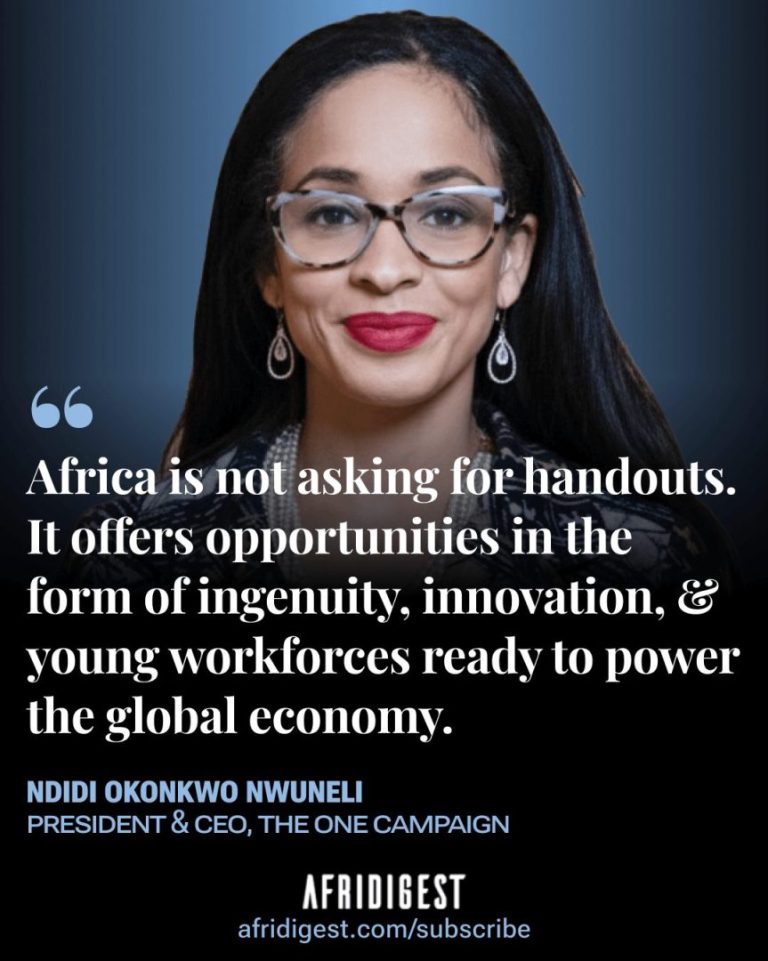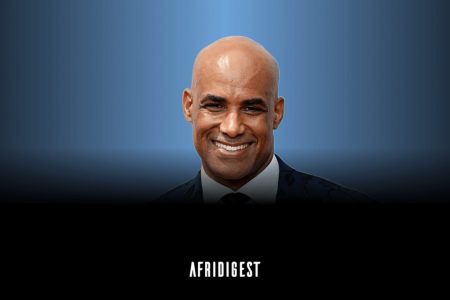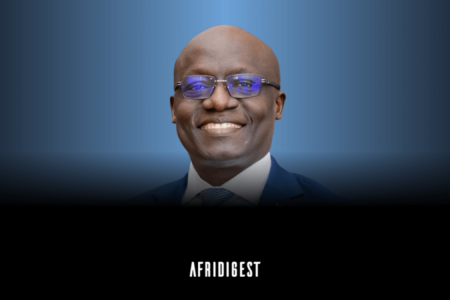See Africa differently.
“Africa is not asking for handouts. It offers opportunities in the form of ingenuity, innovation, and young workforces ready to power the global economy.”

That’s Ndidi Okonkwo Nwuneli, President & CEO of the ONE Campaign, challenging traditional narratives about Africa’s role in the world economy.
Her perspective comes at a critical juncture. As Western aid budgets shrink and development models face scrutiny, African leaders are asserting a new vision for the continent’s future — one built on partnership rather than dependency.
PEPFAR, the U.S. HIV/AIDS initiative, demonstrates how partnerships can evolve from dependency to local ownership and self-sufficiency. African governments now cover over 80% of treatment costs that were once entirely funded by Americans, while healthcare innovations have reduced treatment costs from $10,000 to $40 per person.
“The world needs Africa — not as a recipient of charity but as a strategic partner in ensuring global prosperity,” Nwuneli argues.
The numbers back up her optimism:
- Africa’s population will reach 2.5 billion by 2050, with 70% under 35 years old
- One out of every four young people globally will be African by then
- The continent holds over 70% of the world’s cobalt and significant rare-earth mineral deposits
- The African Continental Free Trade Area could boost the continent’s global exports by 32% by 2035 and lift 30 million people out of extreme poverty
Yet, “the power dynamics between the continent’s 54 diverse nations and the rest of the world remain deeply imbalanced,” she says.
She notes that Africa retains only 10% of global revenue from its critical minerals. That the continent accounts for less than 3% of global trade despite having 18% of the world’s population. And that credit rating agencies grade economies across the continent with a “double standard” — resulting in “unjustifiably higher risk premiums” that impede investments.
The result?
“Wealth continues to flow out of Africa.”
But initiatives to change the status quo are underway.
From the African Continental Free Trade Area connecting 1.5 billion people into a single marketplace, to initiatives like The Platform for Harmonized African Health Products Manufacturing — which aims to supply 60% of vaccines used in Africa by 2040, up from just 1% today — institutions across the continent are building the infrastructure for economic independence.
The shift toward self-determination is also evident, she argues, in leadership changes across key African institutions, with figures like George Elombi of the African Export-Import Bank and Sidi Ould Tah of the African Development Bank steering a “fresh vision” for Africa’s role on the global stage.
Perhaps most visibly, Africa’s creative and tech industries are showcasing what’s possible and inspiring confidence in African-led initiatives. Sub-Saharan Africa’s music industry is the fastest-growing in the world, with revenue rising by more than 20% in 2023 alone. And Nigeria is a world leader in unicorn valuation relative to GDP, according to the WIPO’s 2025 Global Innovation Index.
“The continent’s financial potential is far greater than most imagine, with the capacity to mobilize and retain about $1.43 trillion in domestic resources alone.” And there’s “a growing ecosystem of African stakeholders committed to shaping their own future.”
The message is clear: Africa is moving from the margins to the center of global economic conversations.
And “rebalancing the table means a reimagined partnership defined by Africans, rooted in equity and mutual respect, and driven by shared prosperity.”
What’s your take?
- Does the global business community recognize Africa’s potential as an economic partner rather than an aid recipient or development challenge? How important is this mindset shift?
- How might Western investors and businesses need to change their approach to engage effectively with African-led development?
- What should leaders in government, business, and civil society focus on to enable widespread prosperity that improves the quality of life?





Share: